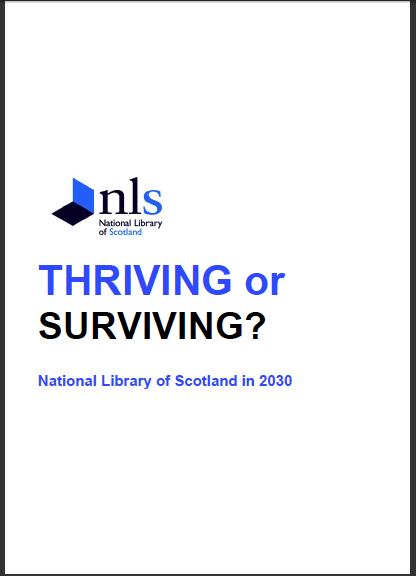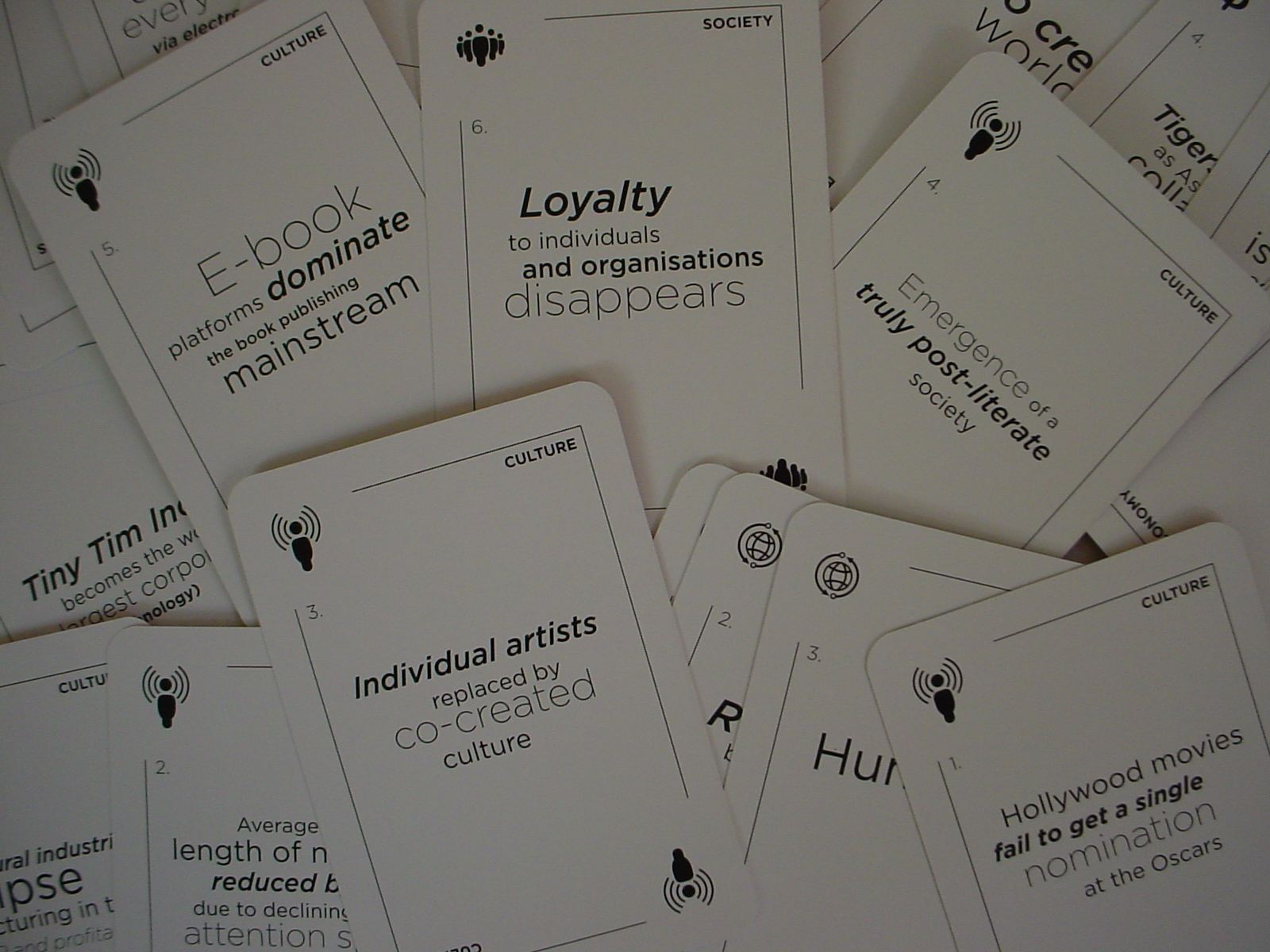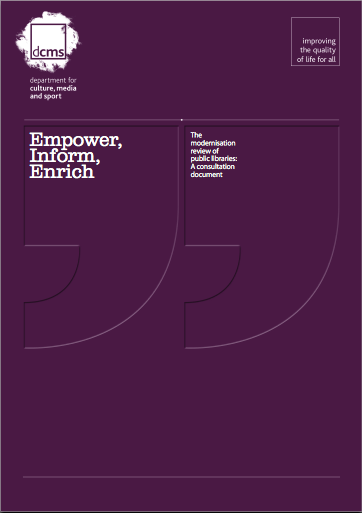
Ellen at the State Library of NSW has sent me a link to a paper from the National Library of Scotland (NLS) that considers the influences that will shape the development of the NLS over the next 20 years. I really should be reading a modernisation review of public libraries from the Department for Culture, Media and Sport (UK) sent to me by Andrew in England, but somehow this paper caught my eye. As a result I printed out all 85 pages and started reading it on a long train journey last night. Here’s my take on the report.
First of all it is important to note that this is a think piece is about national libraries, which is not wholly the same as either research libraries or public libraries although the overlap is considerable. It is also a linear futures thinking piece as opposed to a more multi-polar scenarios document.
First of all their key drivers of change:
1. Changing patterns of publishing
2. Shifting customer needs and behaviour
3. New competition
4. The political environment
5. Internal organisational issues
The paper looks at each of these drivers and considers likely impact. Interesting, both sustainability and digitalisation were considered as givens and it is made clear that the responsibility for digital literacy lies with the education sector not national libraries.
I partly agree with this last point and on balance I also agree that digitalisation should be a theme running throughout all the thinking. However, I also believe that they might be missing something. If you were to look at the future of national libraries from a scenarios perspective you would have one scenario where the thinking around sustainability and digitalisation is turned on its head. Anyway, here’s what they say (my words) about demographics (shifting customer needs), competition, government and internal issues.
Demographics
Declining number of younger users
Rising number of older people, especially very old people (e.g. number of over 75s in Scotland are expected to rise by 81% by 2031). This means that even by 2030 there will be significant numbers of digital immigrants around, many of whom will still prefer paper formats.
Booming interest in family history (partly, I assume, due to ageing and globalisation)
Greater diversity in terms of student types
Younger users seeing “little need or desire to visit the physical library” (I’ll come back to this point at the end).
Competition
Commercial information suppliers will continue to compete with NLS
Connectivity and digitalisation mean increased opportunities for collaboration. Likely mergers between institutions and organisations in the ‘cultural resources’ or ‘memory institutions’ space (i.e. libraries, art galleries, museums, film archives, sound archives etc). This will be driven largely by the digitalisation of materials, which will lead to an ever-greater integration of the content owing institutions themselves. I think this is a very important point. We will experience a blurring between what art galleries, museums and libraries do or represent and national libraries will shift from collecting books to collecting all kinds of items relating to cultural and intellectual heritage.
Government
We should assume that governments will continue to seek cost savings and this will force libraries to develop new income streams. This will also lead to the development of more paid-for services. This is unlikely to result in a total paradigm shift from free to fee but there will be a significant move towards payment for premium services. The rise of e-books and online information will also drive the trend towards hybrid charging models because of the easy availability of mobile and online micro- payments.
Internal organisational issues
A big issue is recruiting younger people into the profession, although it seems to me that the idea of professional librarianship will slowly fade away. The model of the future will be around information professionals and this will encompass a variety of skills ranging from IT and fundraising to management, marketing and even early years education and aged-care specialists.
Other points of interest
Libraries will shift from passive collators to active co-creators of information. Customers will demand more personalisation around ‘their’ information.There will be more do-it-yourself and self-service options. There will be greater automation due to the explosion of content national libraries can no longer collect everything — the shift will be towards selection or edited collections.
OK, so what has the paper missed?
First of all there seems to be little or no discussion of the physical space. Indeed, one author says: “:it becomes increasingly unlikely that users will ever visit the physical premises and they will increasingly have an expectation that services will be delivered directly to their devices wherever they are.” True. This will happen. But some people will still value the physical space in much the same way that some people will still value paper over pixels.
Another issue that is not really discussed relates to information trust. If there is an explosion of content one of the consequences is a declining level of quality. If people have shorter attention spans and information quality is declining them surely what some people will need is someone to talk to whom they trust. Technology can do this up to a point but I think people in combination with technology do it much better.
And this leads me onto my final point, which is that the authors are following the technology ahead of the psychology. Libraries are not just about books. They are also about people.
Read the whole paper yourself here:
http://www.nls.uk/about/policy/docs/future-national-libraries.pdf




